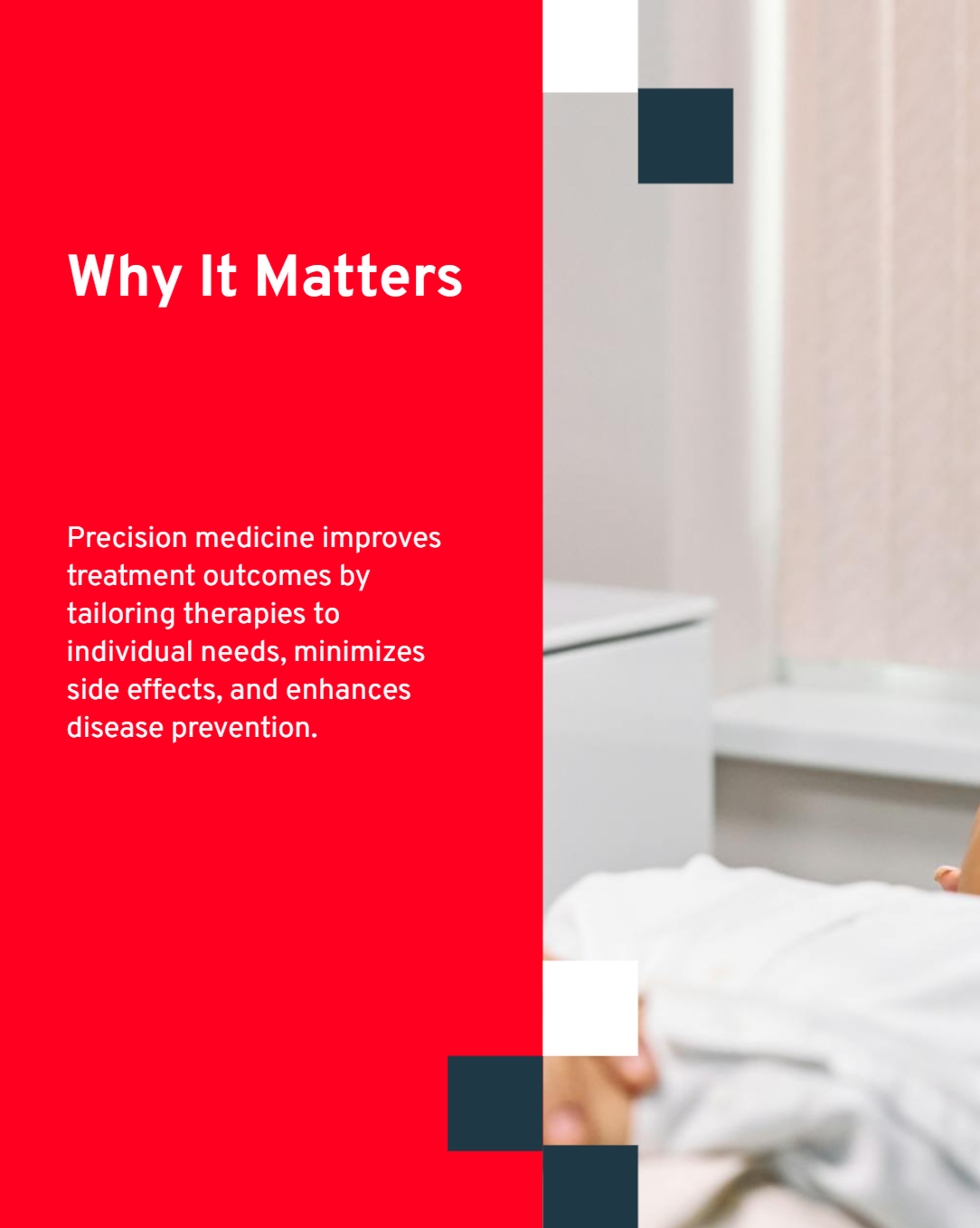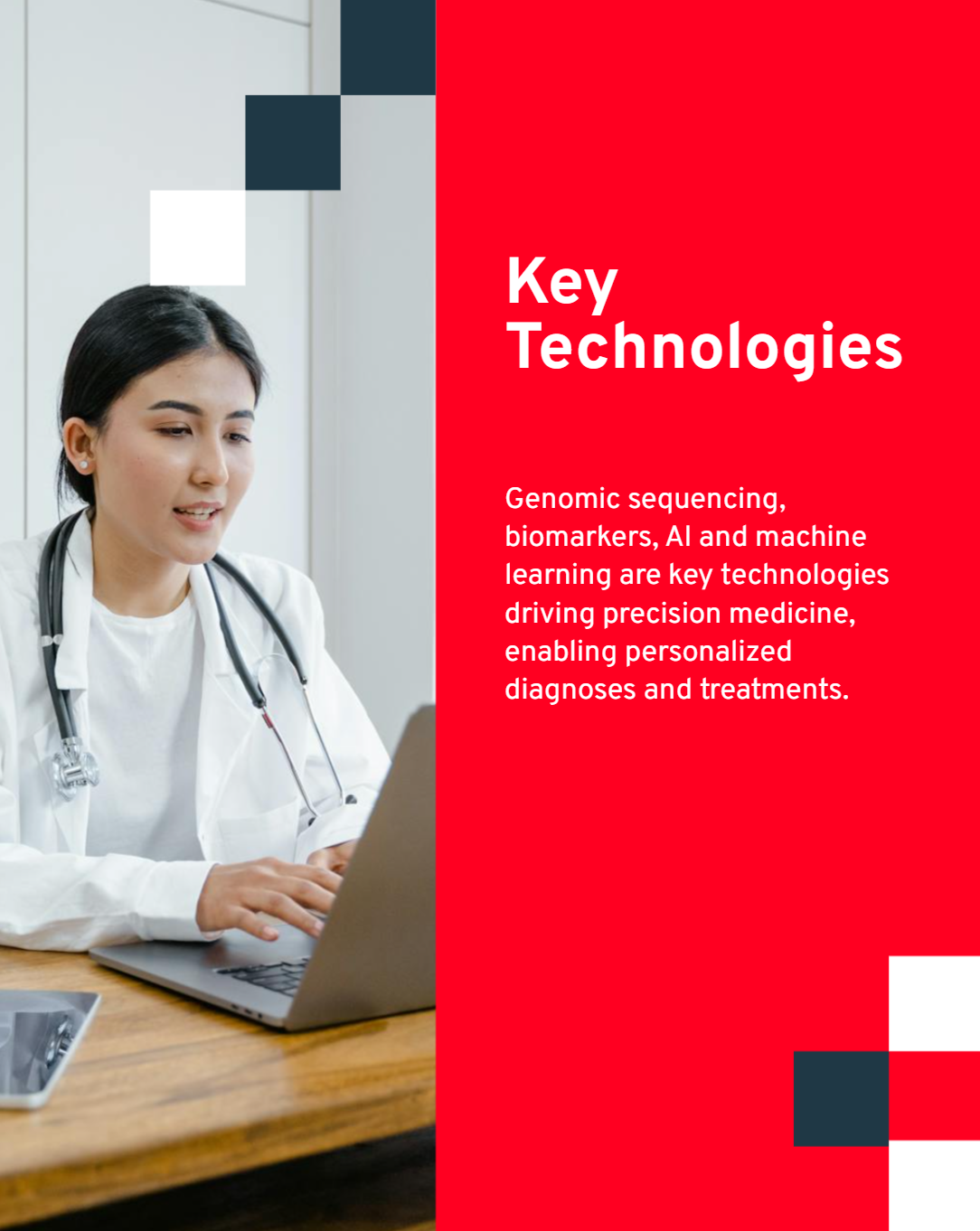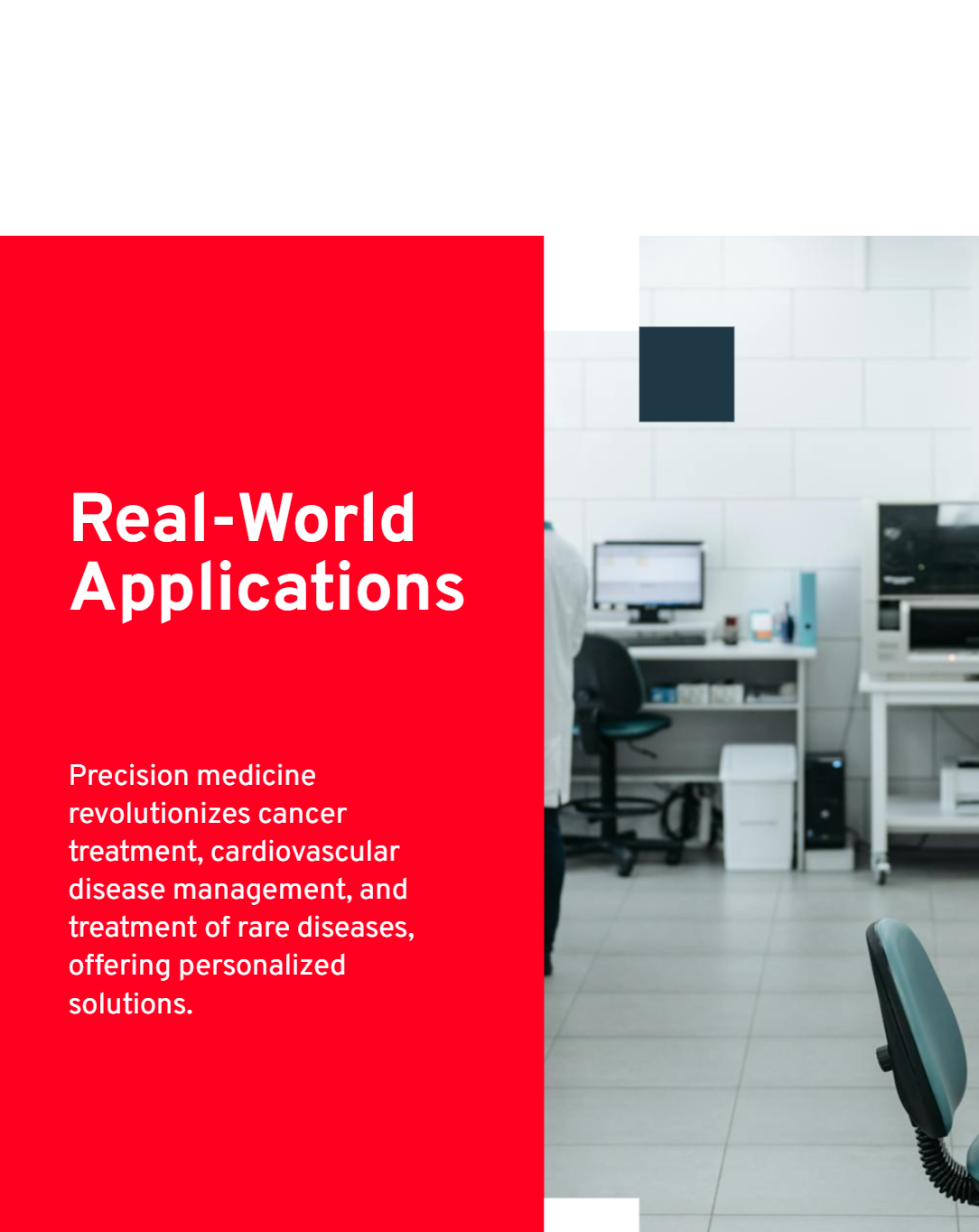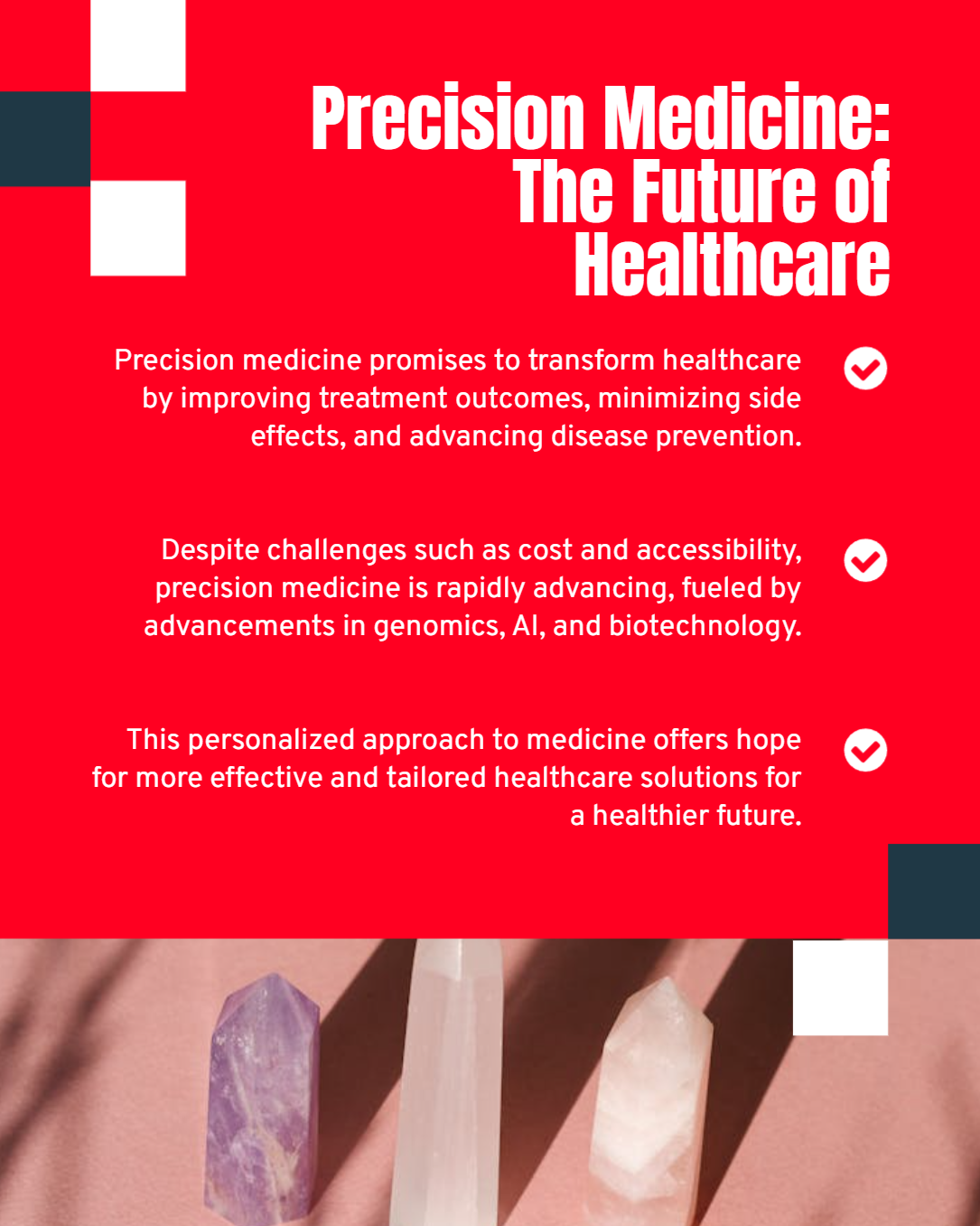Precision medicine is revolutionizing the healthcare landscape, offering personalized treatment options tailored to the individual needs of patients. In this comprehensive guide, we will explore the concept of precision medicine, how it works, and why it is a critical advancement in modern healthcare. By delving into its key components, benefits, challenges, and real-world applications, we aim to provide a thorough understanding of this groundbreaking approach to medicine.
At its core, precision medicine is an innovative approach that customizes healthcare treatment to the specific genetic, environmental, and lifestyle factors of individual patients. Unlike traditional medicine, which often uses a one-size-fits-all approach, precision medicine focuses on tailoring treatment plans that maximize effectiveness based on a patient's unique characteristics.
The concept behind precision medicine is to understand the biological makeup of each person. By analyzing factors such as DNA, medical history, and environmental exposures, healthcare providers can create a treatment plan that targets the underlying cause of a disease, rather than just addressing the symptoms.
Genetics plays a pivotal role in precision medicine. Advances in genomic research have led to the discovery that many diseases, including cancer, heart disease, and diabetes, are influenced by genetic factors. By studying a patient’s DNA, scientists can identify genetic variations that may increase the risk of developing certain diseases, helping to design more effective prevention strategies and treatments.
For example, in the case of cancer, precision medicine allows for the identification of specific genetic mutations in tumors, enabling doctors to choose targeted therapies that are more likely to be effective for the patient. This represents a shift from traditional treatments, such as chemotherapy, that often affect both healthy and cancerous cells indiscriminately.

One of the most significant benefits of precision medicine is its ability to improve treatment outcomes. By tailoring treatments to a patient's unique genetic and molecular profile, doctors can choose therapies that are more likely to work, reducing the risk of side effects and enhancing the effectiveness of treatments.
For example, in oncology, precision medicine allows doctors to select targeted therapies that attack specific genetic mutations in cancer cells. This results in more efficient treatments with fewer side effects compared to traditional chemotherapy or radiation therapy.
Adverse drug reactions (ADRs) are a major concern in healthcare, often leading to hospitalization or even death. With precision medicine, healthcare providers can predict how a patient will respond to a particular medication based on their genetic makeup. This helps minimize the risk of ADRs, as doctors can prescribe medications that are more likely to be effective and well-tolerated.
Genetic testing can also determine how a patient's body metabolizes certain drugs, helping to adjust dosages for optimal therapeutic effects. This personalized approach ensures that patients receive the right medication at the right dose, reducing the likelihood of harmful side effects.
In addition to improving treatment, precision medicine also holds promise for disease prevention. By analyzing genetic risk factors, healthcare providers can identify individuals at higher risk for specific diseases and implement early intervention strategies.
For example, genetic testing can help identify individuals who are at a higher risk of developing cardiovascular disease or diabetes. Armed with this information, doctors can recommend lifestyle changes, such as diet and exercise modifications, or initiate preventive treatments to lower the risk of disease onset.

The advancement of genomic sequencing technologies has been a game-changer for precision medicine. High-throughput sequencing methods, such as next-generation sequencing (NGS), allow scientists to quickly and accurately decode the DNA of individuals, revealing valuable information about genetic variations and mutations.
Genomic sequencing helps to identify genetic predispositions to diseases, enabling doctors to provide tailored treatments that target the root cause of health issues. This technology is essential for advancing personalized medicine and driving innovations in drug development.
Biomarkers are measurable indicators of biological processes or conditions in the body. In precision medicine, biomarkers are used to identify specific genetic mutations or abnormalities that contribute to disease. They help guide the development of targeted therapies and allow doctors to monitor disease progression and treatment response.
For example, biomarkers are used to identify specific mutations in tumors, allowing doctors to select targeted therapies that inhibit the growth of cancer cells. Similarly, biomarkers can be used to identify individuals at risk for conditions like Alzheimer's disease or cardiovascular disease, enabling early intervention.
Artificial intelligence (AI) and machine learning are increasingly being integrated into precision medicine. These technologies help analyze vast amounts of genetic and clinical data, identifying patterns and correlations that might be missed by human researchers. AI and machine learning algorithms can predict how patients will respond to treatments, making it easier for doctors to choose the most effective therapies.
These tools also aid in drug discovery, helping to identify new therapeutic targets and speeding up the development of personalized drugs. As AI continues to evolve, it will play a crucial role in advancing precision medicine.

Cancer is one of the most significant areas where precision medicine has made a profound impact. By analyzing the genetic makeup of cancer cells, doctors can identify specific mutations and choose therapies that target those mutations. This has led to the development of targeted therapies that are more effective and less toxic than traditional treatments.
For instance, drugs like Herceptin target the HER2 protein, which is overexpressed in some breast cancer cells. These targeted therapies have dramatically improved survival rates for patients with specific types of cancer.
Precision medicine is also being used to treat cardiovascular disease. Genetic testing can identify individuals at high risk for heart disease based on their genetic makeup. This allows healthcare providers to tailor prevention strategies, such as prescribing specific medications or recommending lifestyle changes, to reduce the risk of heart attacks, strokes, and other cardiovascular events.
For individuals with rare genetic diseases, precision medicine offers hope where traditional treatments have failed. By understanding the genetic mutations that cause these diseases, doctors can develop personalized treatment plans that address the root causes of the condition.
For example, gene therapy has shown promise in treating genetic disorders like cystic fibrosis and sickle cell anemia. These therapies aim to correct or replace faulty genes, offering a potential cure for these debilitating diseases.
One of the biggest challenges to widespread adoption of precision medicine is its cost. Genomic sequencing, advanced diagnostic tools, and personalized treatments can be expensive, making it difficult for some patients to access these innovations. As technology continues to improve, however, the cost of precision medicine is expected to decrease, making it more accessible to a broader population.
As precision medicine relies heavily on genetic data, ethical and privacy concerns are significant. Ensuring the privacy and security of genetic information is crucial to maintaining patient trust. Additionally, ethical questions around genetic testing and the potential for discrimination based on genetic data need to be addressed.
Integrating precision medicine into existing healthcare systems can be complex. Healthcare providers need to be trained in genomics and personalized medicine, and there needs to be a collaborative effort between researchers, clinicians, and policymakers to ensure that precision medicine becomes a standard part of healthcare.

Precision medicine is transforming healthcare by offering more personalized and effective treatment options. By tailoring medical care to an individual’s genetic, environmental, and lifestyle factors, precision medicine can improve treatment outcomes, reduce side effects, and even prevent diseases before they develop. Despite challenges such as cost and accessibility, the future of precision medicine is bright, with advancements in genomics, AI, and biotechnology continuing to push the boundaries of what is possible in healthcare.
 06.01.2025
06.01.2025